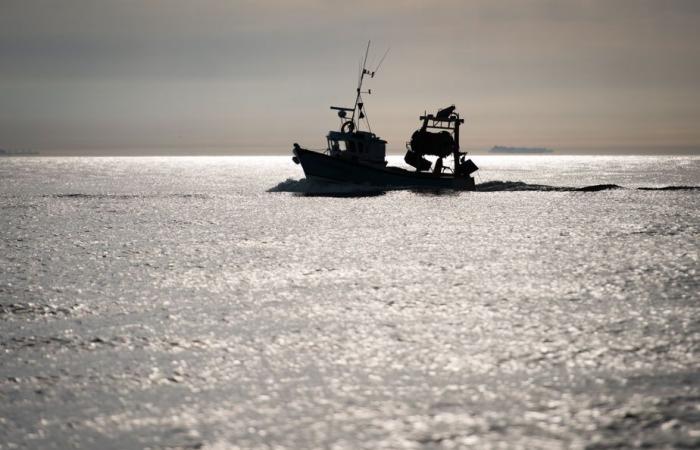Several renowned scientists are concerned about the possible interruption of a major ocean current by the end of the century. The shutdown of the AMOC in the Atlantic Ocean would constitute a tipping point with dramatic consequences.
Published at 5:00 a.m.
What is AMOC?
This is the acronym in English for Atlantic Meridional Overturning Circulation. More concretely, it is a system of ocean currents in the Atlantic Ocean, which plays a role as a climate regulator. The AMOC ensures the circulation of hot and cold waters between the north and the south.
Why is this ocean current important?
If Europe is much milder, especially in winter, it is thanks to AMOC, explains Frédéric Fabry, professor of oceanic and atmospheric sciences at McGill University. “If we compare Vancouver with Brest, it’s not quite the same climate, even if the two cities are at the same latitude. Northern Europe is much warmer, and we know that this is largely due to the Atlantic overturning current. The north of the British Isles and Scandinavia are much warmer than the south of Alaska thanks to these currents,” underlines Mr. Fabry.
How is the climate warming in Europe?
Essentially, the AMOC brings warmer water from the south into the North Atlantic, which helps warm the climate in Europe. Once north, the water cools. The colder the salt water, the denser it is: it then plunges towards the seabed and the AMOC “meanders” in the Atlantic to the south, where the water rises to the surface as it heats up, explains Frédéric Fabry. This circulation of water is essential to maintain a certain climatic balance in the Northern Hemisphere.
What is happening now with this current?
“We see that the North Atlantic is one of the few places that is not warming on the planet. It does not heat up, precisely because this circulation slows down,” explains Frédéric Fabry. It is a phenomenon which is known and which is verified with the results of several measurements and climate models, he specifies.
How can a current simply stop?
“The key, what makes this current work, is that the salty and cold water manages to submerge,” mentions Frédéric Fabry. With climate change, water is warming. The winds that push this current tend to decrease, which means that there is more rain at our latitudes and the sea water becomes less salty. It becomes less and less dense, and the circulation of the AMOC slows down. What scares scientists is that the water becomes thin enough and it stays on the surface, and that’s when everything stops. »
Has this ever happened?
“This current already stopped at the end of the last ice age for a period of approximately 1000 years,” indicates Professor Fabry. In Greenland, we still have ice dating from this period to be able to obtain information on the climate: the average temperature has dropped by 5 to 10 degrees [Celsius]. We are talking about huge changes. »
What would happen if AMOC stopped?
“If that happens, the climate like the one we have in Europe will change dramatically. Northern Europe will become much colder,” says Frédéric Fabry. In North America, the main consequence would be a further rise in sea levels, which are already rising.
And who are these scientists who are concerned about AMOC?
In mid-October, around 40 scientists signed an open letter stating that the risks of an interruption of the AMOC are “greatly underestimated”. “Such a change in ocean circulation would have devastating and irreversible effects, particularly for the Nordic countries, but also for other parts of the world,” wrote the signatories, including American climatologist Michael Mann, and Stefan Rahmstorf, climatologist at the Potsdam Institute for Climate Impact Research in Germany.
Are they right to be worried?
For a long time, it was believed that the risk of the AMOC being disrupted by the end of the century was less than 10%. More recent studies claim that it would be higher. “I now fear that we will push AMOC past this tipping point in the coming decades. If you ask me my opinion, I would say that the risk that we cross the tipping point in this century is about 50/50,” Stefan Rahmstorf told the daily The Guardianon October 23. “Once that power stops, you can’t easily restart it. This is why we talk about a tipping point. We are talking about a phenomenon that would span thousands of years. We don’t know when it’s going to happen, but we know that when it does, it’s for good. That’s why people are nervous,” says Frédéric Fabry.
Read the letter published by the scientists (in English)
Read Stefan Rahmstorf’s daily interview The Guardian (in English)






